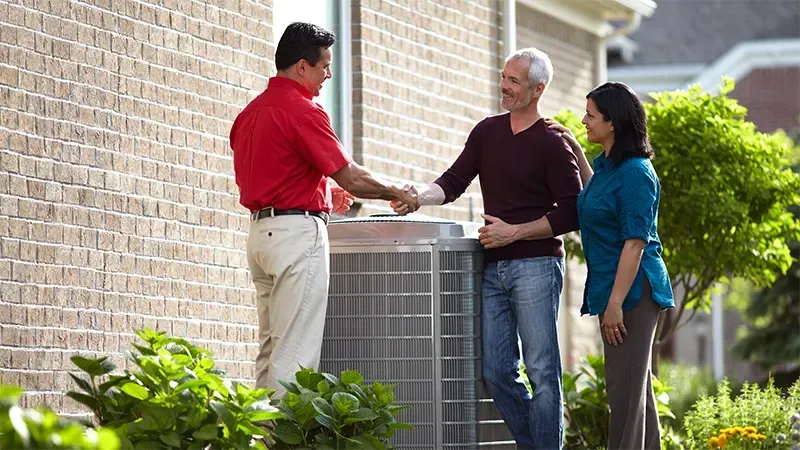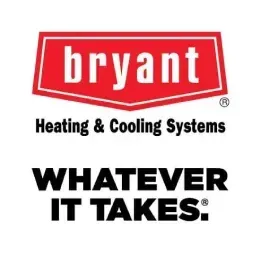How Indoor Air Quality Affects Your Health and HVAC Efficiency

Understanding Indoor Air Quality (IAQ)
The Importance of Prioritizing IAQ
Indoor Air Quality (IAQ) refers to the air quality within and around buildings and structures, especially as it relates to the health and comfort of building occupants. It's a crucial aspect of indoor environmental quality, impacting everything from respiratory health to overall well-being.
Understanding and maintaining good IAQ is essential because we spend significant time indoors, whether at home, work, or school. The air we breathe indoors can significantly affect our health, productivity, and quality of life.
Poor IAQ can result from various factors, including inadequate ventilation, excess humidity, and pollutants like dust, mold, and volatile organic compounds (VOCs).
Let's examine these key factors influencing IAQ:
- Humidity levels: Humidity levels must also be managed, as high and low humidity can contribute to poor IAQ. High humidity can promote mold growth, while low humidity can cause respiratory discomfort and dry Ventilation systems: Ventilation plays a critical role in diluting and removing these pollutants, ensuring a continuous supply of fresh air.
- Indoor pollutants: Pollutants can originate from various sources, including building materials, household cleaning products, and outdoor air entering the building.
Fortunately, homeowners can proactively improve IAQ and create a healthier living environment by understanding what affects air quality the most.
Common Indoor Air Pollutants
Indoor air pollutants are diverse and can come from numerous sources, making it essential to identify and address them to maintain good IAQ.
Common indoor air pollutants include:
- Dust: Dust is a ubiquitous pollutant that can accumulate on surfaces and become airborne, leading to respiratory issues and allergies.
- Mold: Mold is a type of fungus that thrives in damp environments. It can release spores into the air, causing allergic reactions and respiratory problems.
- VOCs: VOCs are chemicals emitted as gases from various products, including paints, cleaning supplies, and building materials. These compounds can cause short- and long-term health effects, ranging from eye and respiratory tract irritation to more severe conditions like liver and kidney damage.
- Pet dander: Pet dander, consisting of tiny flecks of skin shed by cats, dogs, and other animals with fur or feathers, is another common indoor pollutant. It can trigger allergic reactions and exacerbate asthma symptoms.
These pollutants can enter indoor environments through various means, such as outdoor air infiltration, household activities, and the use of certain products. For instance, VOCs can be released when paints and cleaning agents are used, while mold can grow in areas with high humidity or water damage. By identifying the sources of these pollutants, homeowners can take targeted measures to reduce their presence and improve IAQ.
Measuring IAQ
Measuring IAQ is a critical step in identifying potential problems and ensuring a healthy indoor environment. Various tools and methods are available to assess IAQ, ranging from simple DIY kits to professional-grade equipment.
Common tools include air quality monitors that measure levels of pollutants, such as:
- Carbon dioxide (CO2)
- Carbon monoxide (CO)
- Particulate matter (PM)
These devices provide real-time data, allowing homeowners to track changes in IAQ and take immediate action if necessary. Additionally, professional IAQ assessments can involve more comprehensive testing, including the analysis of air samples for specific pollutants like mold spores and VOCs.
Regular IAQ assessments and monitoring are essential for maintaining a healthy indoor environment. By keeping track of IAQ levels, homeowners can identify trends and potential issues before they become severe health hazards. For example, a sudden increase in CO2 levels might indicate inadequate ventilation, while elevated PM levels could suggest the presence of dust or other particulate pollutants.
Regular monitoring also helps in evaluating the effectiveness of IAQ improvement measures, such as the installation of air purifiers or the implementation of better ventilation strategies. By staying vigilant and proactive, homeowners can ensure their indoor air remains clean and healthy.
Health Impacts of Poor Indoor Air Quality
Respiratory Issues
Poor IAQ can profoundly impact respiratory health, leading to issues such as asthma, allergies, and chronic bronchitis. When indoor air is contaminated with pollutants like dust, mold spores, and VOCs, it can irritate the respiratory system and exacerbate existing conditions.
For instance, individuals with asthma may experience more frequent and severe attacks when exposed to high levels of indoor pollutants. Allergens like pet dander and dust mites can trigger allergic reactions, causing symptoms such as sneezing, coughing, and itchy eyes. Chronic exposure to poor IAQ can also lead to the development of chronic bronchitis, characterized by persistent cough and mucus production.
Numerous studies have established a clear link between IAQ and respiratory health, showing exposure to indoor pollutants can worsen respiratory symptoms and increase the risk of respiratory infections.
For example:
- A study published in the American Journal of Respiratory and Critical Care Medicine found that children exposed to high levels of indoor pollutants were more likely to develop asthma and other respiratory conditions.
- Another study published on the NLM highlighted that individuals living in homes with poor ventilation and high humidity levels were at a greater risk of experiencing respiratory issues.
These findings underscore the importance of maintaining good IAQ to protect respiratory health.
Cardiovascular Effects
In addition to respiratory issues, poor IAQ can also have significant cardiovascular effects. Indoor air pollutants, such as fine particulate matter (PM2.5) and carbon monoxide (CO), can enter the bloodstream and affect heart health. Exposure to these pollutants has been linked to an increased risk of heart disease, hypertension, and other cardiovascular conditions.
For instance, fine particulate matter can cause inflammation and oxidative stress, leading to the development of atherosclerosis (hardening of the arteries). Carbon monoxide, a colorless and odorless gas, can reduce the amount of oxygen carried by the blood, putting additional strain on the heart.
Relevant research findings support the link between IAQ and cardiovascular health:
- A study published in the Journal of the American College of Cardiology found that long-term exposure to indoor air pollutants was associated with an increased risk of cardiovascular events, such as heart attacks and strokes.
- Another
study published by the National Institutes of Health highlighted that individuals living in homes with high levels of indoor pollutants had higher blood pressure and an increased risk of developing hypertension.
These findings emphasize the need for effective IAQ management to protect cardiovascular health and reduce the risk of heart-related conditions.
Mental and Cognitive Health
The impact of poor IAQ extends beyond physical health, affecting mental and cognitive well-being as well. Exposure to indoor pollutants, such as VOCs and mold, has been linked to various mental health issues, including stress, anxiety, and depression. Poor IAQ can also impair cognitive function, leading to difficulties in concentration, memory, and decision-making. For example, high levels of CO2 and other pollutants can reduce oxygen levels in the brain, affecting cognitive performance and overall mental clarity.
Scientific studies provide evidence of the link between IAQ and mental health:
- An Environmental Health Perspectives study found that individuals exposed to high levels of indoor pollutants reported higher levels of stress and anxiety.
- A Harvard
study highlighted that poor IAQ in office environments was associated with reduced cognitive function and productivity.
These findings underscore the importance of maintaining good IAQ to support mental and cognitive health. By ensuring clean and healthy indoor air, individuals can improve their overall well-being and enhance their quality of life.
HVAC Systems and Their Role in IAQ
How HVAC Systems Work
HVAC systems, which stand for Heating, Ventilation, and Air Conditioning, play a crucial role in maintaining indoor air quality. These systems are designed to regulate indoor temperature, humidity, and air circulation, creating a comfortable and healthy living environment.
The primary components of an HVAC system include:
- The furnace or heat pump
- The air conditioner
- The ductwork
- The ventilation system
The furnace or heat pump heats the air while the air conditioner cools it. The ductwork distributes the conditioned air throughout the building, and the ventilation system ensures a continuous supply of fresh air.
HVAC systems contribute to IAQ by filtering out pollutants and maintaining optimal humidity levels. Air filters within the HVAC system capture dust, pollen, and other airborne particles, preventing them from circulating indoors. Advanced filters, such as HEPA filters, can remove even smaller particles, including mold spores and pet dander.
HVAC systems also help control humidity levels, preventing the growth of mold and mildew. Proper ventilation is also essential, as it helps dilute indoor pollutants and bring in fresh outdoor air. By understanding how HVAC systems work, homeowners can appreciate their role in maintaining good IAQ and take steps to ensure their proper functioning.
HVAC Efficiency and IAQ
Efficient HVAC systems are essential for maintaining good IAQ. When HVAC systems operate efficiently, they can effectively filter out pollutants and maintain optimal humidity levels, contributing to a healthier indoor environment. Regular maintenance and filter replacements are crucial for ensuring HVAC efficiency.
Dirty or clogged filters can reduce the system's ability to capture pollutants, leading to poor IAQ. Additionally, neglected HVAC systems can develop issues such as duct leaks and poor ventilation, further degrading IAQ. By keeping HVAC systems well-maintained, homeowners can ensure they operate efficiently and contribute to better IAQ.
Efficient HVAC systems also help reduce energy consumption and lower utility bills. When HVAC systems are well-maintained, they require less energy to operate, leading to cost savings. Regular maintenance, such as cleaning and inspecting components, can prevent issues that reduce efficiency, such as dirty coils and blocked ducts.
Upgrading to energy-efficient HVAC systems can further enhance IAQ and reduce energy consumption. For example, modern HVAC systems with advanced filtration and ventilation capabilities can provide better air quality while using less energy. By investing in efficient HVAC systems, homeowners can enjoy both improved IAQ and energy savings.
Common HVAC Problems Affecting IAQ
Several common HVAC problems can negatively impact IAQ, making it essential to address them promptly. One of the most common issues is dirty filters, which can reduce the system's ability to capture pollutants and circulate clean air.
When filters become clogged with dust and debris, they can restrict airflow and reduce the efficiency of the HVAC system. This can lead to increased levels of indoor pollutants and poor IAQ. As a result, regular filter replacements are crucial for maintaining good IAQ and ensuring the HVAC system operates efficiently.
Duct leaks are another common problem that can affect IAQ. Leaky ducts can allow pollutants from unconditioned spaces, such as attics and crawl spaces, to enter the indoor air, introducing dust, mold spores, and other contaminants into the living environment.
Poor ventilation is also a significant issue, as it can lead to the buildup of indoor pollutants and inadequate fresh air supply. Ensuring proper ventilation and addressing duct leaks can help improve IAQ and create a healthier indoor environment. By being aware of these common HVAC problems and taking preventive measures, homeowners can maintain good IAQ and ensure their HVAC systems operate efficiently.
Improving Indoor Air Quality
Ventilation Strategies
Proper ventilation is essential for maintaining good IAQ, as it helps dilute indoor pollutants and bring in fresh outdoor air. There are several strategies homeowners can use to improve ventilation, including natural ventilation and mechanical systems. Natural ventilation involves opening windows and doors to allow fresh air to circulate indoors. This can be particularly effective in mild weather conditions when outdoor air quality is good. However, natural ventilation may not always be sufficient, especially in areas with high outdoor pollution levels or extreme weather conditions.
Mechanical ventilation systems can provide more consistent and controlled ventilation. There are two primary types of ventilation systems:
- Exhaust fans, typically installed in kitchens and bathrooms, help remove moisture and pollutants from specific areas.
- Whole-house ventilation systems, such as energy recovery ventilators (ERVs) and heat recovery ventilators (HRVs), provide continuous ventilation by exchanging indoor air with outdoor air while minimizing energy loss.
These systems can be particularly beneficial in tightly sealed homes, where natural ventilation may be limited. By implementing effective ventilation strategies, homeowners can improve IAQ and create a healthier indoor environment.
Air Purification Methods
Air purifiers are another effective tool for improving IAQ by removing pollutants from indoor air.
There are various types of air purifiers available, including HEPA filters, UV purifiers, and activated carbon filters:
- HEPA filters are highly effective at capturing small particles, such as dust, pollen, and mold spores, making them an excellent choice for individuals with allergies or asthma.
- UV purifiers use ultraviolet light to kill bacteria, viruses, and mold spores, providing an additional layer of protection against airborne pathogens.
- Activated carbon filters are effective at removing odors and VOCs, making them ideal for homes with strong chemical smells or tobacco smoke.
The effectiveness of air purifiers depends on several factors, including the type of pollutants present and the size of the area being treated. For optimal results, homeowners should choose air purifiers that match their specific needs and ensure they are appropriately sized for the space.
Regular maintenance, such as replacing filters and cleaning components, is equally essential for maintaining the effectiveness of air purifiers. By incorporating air purifiers into their IAQ improvement strategies, homeowners can reduce indoor pollutants and create a cleaner, healthier living environment.
Regular Maintenance and Cleaning
Regular maintenance and cleaning are crucial for maintaining good IAQ and ensuring HVAC systems operate efficiently. This includes routine tasks such as replacing air filters, cleaning ducts, and inspecting HVAC components. Dirty or clogged filters can reduce the system's ability to capture pollutants, leading to poor IAQ.
Regular filter replacements are essential for maintaining good IAQ and ensuring the HVAC system operates efficiently. Additionally, cleaning ducts can help remove accumulated dust and debris, preventing them from circulating indoors.
Regular maintenance also involves inspecting HVAC components for potential issues, such as leaks, blockages, and wear and tear. Addressing these issues promptly can prevent them from affecting IAQ and HVAC efficiency.
In addition to HVAC maintenance, regular cleaning of indoor spaces is essential for reducing indoor pollutants. This includes dusting surfaces, vacuuming carpets, and cleaning upholstery to remove dust, pet dander, and other allergens. By incorporating regular maintenance and cleaning into their routines, homeowners can maintain good IAQ and create a healthier indoor environment.
Practical Tips for Homeowners
DIY IAQ Improvement Tips
Improving IAQ doesn't always require professional intervention; there are several simple and cost-effective steps homeowners can take on their own. One effective strategy is using houseplants, which can help filter indoor air and remove pollutants. Plants such as spider plants, peace lilies, and snake plants are known for their air-purifying properties.
Another tip is to reduce the use of products that emit VOCs, such as certain paints, cleaning supplies, and air fresheners. Opting for low-VOC or VOC-free products can significantly reduce indoor air pollution.
Controlling humidity levels is also essential for maintaining good IAQ. Using dehumidifiers in damp areas, such as basements and bathrooms, can help prevent mold growth and reduce moisture levels.
Homeowners can further improve ventilation by regularly opening windows and using exhaust fans in kitchens and bathrooms. Regularly cleaning and vacuuming indoor spaces can help remove dust, pet dander, and other allergens. By implementing these simple DIY tips, homeowners can improve IAQ and create a healthier living environment.
When to Seek Professional Help
While there are many steps homeowners can take to improve IAQ on their own, there are situations where professional help is necessary. Signs that indicate the need for professional IAQ assessment and HVAC maintenance include persistent respiratory issues, unexplained odors, and visible mold growth.
If occupants experience frequent allergies, asthma attacks, or other respiratory symptoms, it may be a sign of poor IAQ that requires professional intervention. Unexplained odors, such as musty or chemical smells, can also indicate the presence of indoor pollutants that need to be addressed.
Choosing a qualified professional for IAQ and HVAC services is essential for ensuring effective solutions. Homeowners should look for certified professionals with experience in IAQ assessment and HVAC maintenance. Reading reviews and asking for recommendations can help identify reputable service providers.
Professionals can also help by conducting comprehensive IAQ assessments, identifying potential issues, and recommending targeted solutions. By seeking professional help, homeowners can ensure their IAQ improvement efforts are effective and create a healthier indoor environment.
Investing in IAQ Technology
Investing in the latest IAQ technology can provide significant benefits for homeowners looking to improve indoor air quality. Smart air quality monitors, for example, can provide real-time data on indoor pollutant levels, allowing homeowners to track changes and take immediate action if necessary.
These devices can measure various pollutants, including CO2, VOCs, and particulate matter, providing a comprehensive overview of IAQ. Advanced HVAC systems with integrated air purification and ventilation capabilities can also enhance IAQ while improving energy efficiency.
When considering investing in IAQ technology, homeowners should evaluate their specific needs and the potential benefits of different solutions. For example, smart air quality monitors can provide valuable insights into IAQ trends and help identify potential issues.
Advanced HVAC systems with features such as HEPA filtration and energy recovery ventilation can provide continuous air purification and ventilation, ensuring a healthier indoor environment. By investing in IAQ technology, homeowners can enjoy improved air quality, enhanced comfort, and peace of mind.
A Superior Air Conditioning Company Is Your Local Solution for IAQ
Maintaining good
indoor air quality is essential for protecting your health and ensuring the efficiency of your HVAC system. At A Superior Air Conditioning Company, we specialize in providing
comprehensive IAQ assessments and audits to help property owners create a healthier living environment.
Our team of certified professionals is dedicated to delivering top-quality service and ensuring your home remains comfortable and safe. If you're in Panama City Beach, FL, and need assistance with your IAQ or HVAC system, don't hesitate to trust our HVAC specialists. We can help you breathe easier and enjoy a healthier home.
Reach out to us online today to schedule a consultation or call our team at (850) 749-5646 to take the first step towards better indoor air quality




